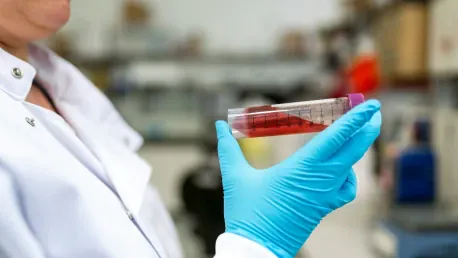The University of South Florida (USF) is undertaking significant expansions in its biomedical engineering program to address its consistent and rapid growth. Established in 2017 with just a single faculty member and courses tailored exclusively for graduate students, the program has seen remarkable progress. The growth was evident with the 2020 graduating class of five undergraduate seniors, which has increased considerably over the years, now featuring a senior capstone class of 42 students and an anticipated additional 10 next year.
Enhancing Space and Resources
Planned Laboratory Expansions
In response to the increasing class sizes, USF has recognized the pressing need for more space and resources dedicated to biomedical engineering. The university plans to develop around six new labs and a student engagement area by next year. Additionally, current labs will be expanded to accommodate the growing number of students and research activities. These expansive upgrades will be located on the seventh floor of the Interdisciplinary Sciences Building. This area is a shared space, also utilized by other departments such as medical engineering and Cyber Florida.
The newly established and expanded labs are set to introduce state-of-the-art facilities focusing on tissue engineering, stem cells, cell lines, molecular biology, anatomy, and microscopy. A notable equipment addition will be a new 3D bioprinter. The inclusion of these technologies and facilities will provide students with invaluable hands-on experience, utilizing cutting-edge medical production technology and sophisticated mechanical equipment. The on-site experience gained here will be imperative for students stepping into professional biomedical engineering roles post-graduation.
Student Engagement and Community
In addition to lab expansions, USF will create a student engagement area specifically designed for group project meetings, seminars, and fostering a sense of community among biomedical engineering students. This engagement area will serve as a collaborative space where students can work together on various projects, enhancing their learning experience outside traditional classrooms.
The new facilities and engagement spaces aim to seamlessly integrate with the ongoing activities of other departments within the Interdisciplinary Sciences Building, thereby minimizing disruptions. These developments underscore USF’s dedication to providing top-tier resources and fostering an environment conducive to academic excellence and innovation in the biomedical engineering field.
Advancing Research and Education
New Faculty and Research Capabilities
The growth of the biomedical engineering program at USF is not limited to infrastructure expansions but also involves an increase in faculty and research capabilities. The program currently boasts 14 primary faculty members and numerous affiliate faculty. To ensure the proper functioning and management of the new research labs, USF will welcome three new faculty members. These new additions aim to facilitate continued growth in research output and educational quality.
Graduate teaching assistant Ross Turner has expressed enthusiasm about the planned expansions, highlighting the benefits of increased specialized equipment and space for research and project design. This reflects the commitment to providing students and researchers with the tools needed to push the boundaries of biomedical engineering.
Continuous Innovation and Student Opportunities
Senior student Victoria Johnson has emphasized the ever-evolving nature of the biomedical engineering field, noting the constant growth and innovation within the industry. The continuous development of new facilities and an increase in faculty aims to match the dynamic demands of the field, ensuring that students are well-prepared to meet future challenges and contribute to advancements in biomedical technology.
As the biomedical engineering program expands, students will gain enhanced opportunities for interdisciplinary collaboration, comprehensive research training, and the practical application of knowledge. These opportunities are designed to cultivate a robust learning environment that emphasizes real-world problem-solving skills and innovative thinking.
Future Prospects and Funding
Ensuring Minimal Disruption
USF’s plans for expansion are set to proceed with minimal disruption to other departments housed within the Interdisciplinary Sciences Building. This careful planning ensures that while the biomedical engineering program grows, the operations of other departments will not be adversely affected. This strategic approach demonstrates the university’s commitment to holistic campus development.
Funding and Support
While the specifics of the funding for these expansions are currently undisclosed, there are indications that details will be revealed soon. The ongoing support for the program ensures that USF can continue to provide cutting-edge resources and facilities for the next generation of biomedical engineers. This investment highlights the university’s dedication to fostering a high-caliber educational environment that keeps pace with technological advancements and industry standards.
The continuous enhancement of the biomedical engineering program aligns with USF’s broader strategic objectives, promising to offer students a comprehensive and forward-thinking educational experience. These improvements are pivotal in maintaining the program’s competitive edge and its reputation as a leading institution in biomedical engineering education.
Conclusion and Future Considerations
The University of South Florida (USF) is making substantial expansions to its biomedical engineering program to manage its ongoing and rapid growth. Launched in 2017, the program started with just one faculty member and was initially designed to cater exclusively to graduate students. Over the years, the program has seen notable advancements. This was particularly evident with the 2020 graduating class of five undergraduate seniors. Since then, the number of students has risen significantly, with the senior capstone class now consisting of 42 students. Moreover, an additional 10 students are expected in the upcoming year. This steady increase underscores the program’s success and the university’s commitment to fostering innovation in biomedical engineering. Bridging the demands of both graduate and undergraduate students, these expansions illustrate USF’s dedication to providing high-quality education and meeting the evolving needs of the biomedical field.









